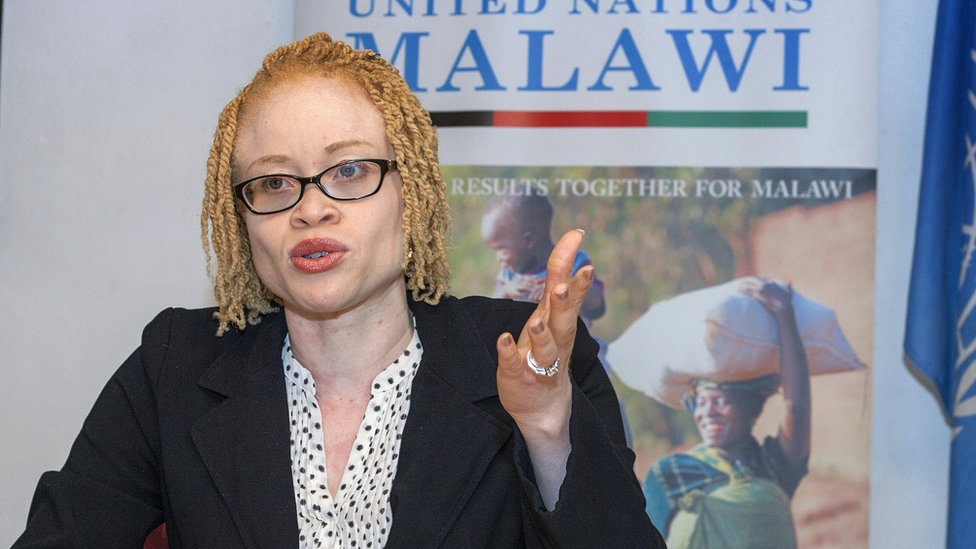Ikponwosa Ero was born in Nigeria with albinism, a rare condition that results in the lack of pigment in hair and skin.
“Belonging has been a problem. We’re in between. I always think I’m black and then I look at the mirror and then I’m like: ‘Aaah, yes I’m that white. I forgot about that’.”
“I sound African, I live with Africans, it’s just that I forget that I’m pale.”
But growing up is not something she could ever forget.
“A kid bullied me for a very long time, a majority of people just didn’t know enough about albinism. It was just too striking to be ordinary.”
“At age six or seven I was thinking about it. I was thinking about how I’m going to survive, not being able to control how people see me?”
Ikponwosa Ero thinks albinism is still misunderstood. That’s why she works with the United Nations to dispel myths around it.
“Mothers are being accused of infidelity and then the mothers as a result are oftentimes abandoned.”
There is a myth that the child conceived with albinism was conceived in strange circumstances. “They’ll say, ‘your mother when she was about to conceive you she had interacted with a person with albinism.’ So as a result you’d see pregnant women really taken off when they see you and some of them would even spit.”
There are also other myths around body parts of people with albinism, that they can be used in witchcraft.
In 2015, Ikponwosa became the first UN Independent Expert on albinism. Her goal is to raise awareness and fight the stigma around this condition.
“Fortunately we’re seeing a lot of reduction in that with so many activities and advocacy happening in the last decade but it’s still a battle.” She continues to travel wide and far advocating for people with albinism.














